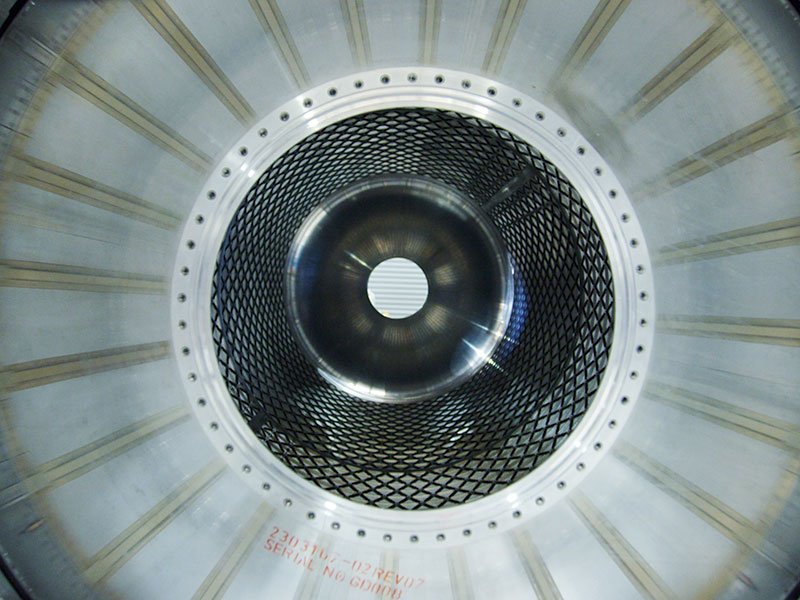The space collaboration treaty between the US and Australia last week might encourage more foreign launches from Australian soil, but it does not enable technology transfer and as a result will deliver only marginal economic benefit.
The Technology Safeguards Agreement unveiled by US President Joe Biden and Prime Minister Anthony Albanese in Washington is designed to protect US technology – including rockets and satellites – to encourage the United States commercial launch companies to use Australia as a launchpad.
While the agreement might lead to US rocket companies paying fees to Australian launch sites, it does not enable Australian companies to join those rocket or satellite supply chains.
Gilmour Space Technologies chief executive officer Adam Gilmour says that while the TSA had “been dressed up as a fantastic boon for the Australian economy,” the reality is that while any focus on the space sector is a good thing, the economic benefit of the TSA is modest.
“This is a nothingburger,” he told InnovationAus.com.

Gilmour Space is expected to carry out the maiden test flight of its own orbital vehicle, a three-stage rocket designed and built on the Gold Coast – in the next several months.
Adam Gilmour’s concern is that with the signing of the Technology Safeguard Agreement, the Australian government and in particular the Defence establishment, will look at US commercial rockets launching from Australia as “solving” the nation’s sovereign access to space issue.
“I will strongly fight against anyone that says a US launch vehicle that launches from an Australian space port is a sovereign launch. It’s not. It is only a sovereign launch if it’s an Australian rocket,” Mr Gilmour said.
“It’s just the same as if I take my rocket to the United States and launch it from [there]. The Americans don’t say that was a sovereign launch, they say it’s a foreign launch.”
The difference relates to sovereign capability, he says. Just because a US company – for example SpaceX – comes to Australia and launches a satellite does not mean that Australia has the capability to launch satellites.
“I just don’t want the government here to get complacent to say, ‘great, we solved all our access to space problems’ by just bringing a US vehicle over here and calling it a sovereign launch. It is not.”
The Australian Space Agency confirmed that the “TSA focuses on the protection of sensitive US technology in Australia including launch vehicles and components and subcomponents. The TSA does not focus on trade or manufacture of components and subcomponents.”
“Following signing, the TSA is still subject to Australia’s domestic treaty-making process before coming into effect. This includes tabling in Parliament for consideration by the Joint Standing Committee on Treaties (JSCOT),” the Space Agency said.
“As per Australia’s treaty-making process, the text of the agreement will become public when it is tabled in Parliament,” the agency said.
Adam Gilmour says the “devil will be in the detail” but says a lot can be extrapolated from the UK version of the TSA.
“If you look at the UK agreement, the Americans would have to bring everything. They have to bring all of the people and they’ve all got to be US citizens,” he said.
“They’ve got to bring every single component, so they’ve got to it all here. And they have got to operate the launch site, they can’t have any Australians on the launch site.
“So it’s almost like [the launch site] becomes a piece of US property during the period of the launch. And if the rocket fails and falls into the ocean, only US citizens can go out and get it and bring it back and safely store it.
“What I’m worried about is that the Department of Defence puts Australian satellites on a US launch vehicle that’s operating for an Australian spaceport and calls it sovereign. That is not sovereign.”
If there is an upside to the TSA agreement, it is that it should make it easier for a sovereign Australian launch company like Gilmour Space Technologies to launch US-owned commercial satellites.
The Technology Safeguards Agreement (TSA) was signed in Washington last week, six months after an in-principal agreement was struck by Anthony Albanese and Joe Biden.
The agreement opens the door to new space-related commercial opportunities between the two nations by providing a new legal and technical framework for the handling of sensitive technology during US space launches from Australia.
The US already holds similar agreements with other nations including the United Kingdom and New Zealand, in part to meet its international non-proliferation commitments.
Do you know more? Contact James Riley via Email.

